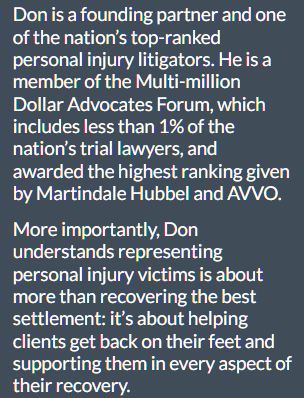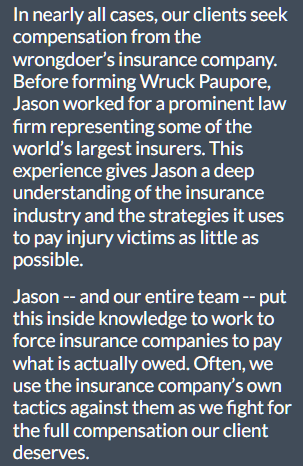




Drowning injuries and deaths in public and private pools are traumatizing for victims, their families, and even witnesses. They are also often avoidable when pool owners properly prioritize swimmers’ safety. When that does not happen and victims suffer injuries as a result, the owner could be liable.
Pool owners are liable for swimming accidents, injuries, and deaths when their breach of duty causes them, meaning they failed to act reasonably with consideration for others’ safety. Pool owners might also be liable for slip and fall injuries due to hazardous conditions, as well as for their pools being “attractive nuisances” to children, meaning they were appealing to kids and did not have the appropriate fencing to deter children from falling in and drowning. When liable, pool owners can be made to pay all damages associated with an injury or drowning death, which may include economic, non-economic, and punitive damages.
Call Wruck Paupore’s Indiana personal injury lawyers today at (219) 322-1166 for a free case assessment.
The owner of a pool, whether it is fully private and located in their backyard, privately accessible by those who pay for access, or open to the public, might be liable for injuries and fatalities when they breach the duty of care they owe swimmers, causing accidents and harm in Indiana. To determine liability for your accident and injuries, our attorneys will first identify your status as either an invitee, licensee, or trespasser. If you pay to access a pool, you are squarely an invitee. If you are invited to a friend’s house to swim, you are likely an invitee as well, though some situations where you have a standing invite to use a friend’s pool for your own benefit might make you a licensee instead. If you are there without permission, you are a trespasser. However, a doctrine known as the “attractive nuisance” doctrine might apply to hold the pool owner liable for injuries to children who might not be able to analyze the risks.
Owners of pools in Indiana have a duty to keep the premises reasonably safe for invitees, such as social guests who visit private pools or paying customers. This duty involves promptly identifying certain hazards, addressing them, warning invitees about them, repairing the issue, or closing the pool to avoid injury. Pool owners must also comply with local and state rules for public pools regarding invitee safety. Signs warning you that you are “swimming at your own risk” are generally there to deter swimmers or make them aware of the potential danger; these signs do not necessarily mean you cannot file a lawsuit against the owner.
In Indiana, lifeguards are mandatory for all public and semi-public pools with surface areas of 2,000 square feet or more and must be on watch at all times the pool is open. Delays between lifeguards’ shifts could lead to drowning deaths that the owner would be liable for. Lifeguards also need to always have certain lifesaving and safety equipment with them, like a ring buoy and first aid kit and must have the appropriate training to adequately rescue swimmers who need it.
When bringing a case against a public pool, our personal injury lawyers might obtain or force the preservation of security camera footage from the facility by quickly making written demands, so it is not erased, interview others who were present during the accident, and investigate the pool’s safety standards to see if they are adequate.
Residential pool owners also owe a duty of care to licensees who use their private pool. A licensee could be someone given permission to use a pool, like a neighbor who comes by to swim laps while you’re out shopping rather than for a social visit like a pool party. That would instead make them an invitee. While they might not have to inspect the area for possible hazards, they should fix any dangerous conditions known to them and inform licensees. Residential pool owners also have to follow the rules for constructing and owning pools, and failing to do so could make them liable for potential injuries. There are specific mandates for the construction of pools, decks, slides, diving boards, and the means of entry and exit, all to help ensure the safety of swimmers, even in residential pools.
Though property owners do not owe trespassers a meaningful duty of care apart from refraining from intentionally injuring them, they might be liable for injuries in certain situations. For example, under I.C. § 34-31-11-3, pools are considered “attractive nuisances” to children, who may be enticed by a pool and wander into it, particularly if the property does not have the appropriate fencing. If a child is attracted to a pool and suffers injuries or dies from drowning – usually because the owner failed to properly fence in and secure the pool against trespassers – then their surviving family might be able to bring a wrongful death claim against the owner.
Pool owners can also be held liable for any trespasser’s damages, not just children, if they willfully injure them.
When our attorneys bring claims against liable pool owners, we can seek compensation for economic and non-economic damages. If victims are injured or drown due to gross negligence, we may also pursue punitive damages on your behalf.
Whether victims trip over broken concrete next to a public pool or suffer drowning injuries in a residential pool due to negligence, they may recover economic damages. Drowning injuries are some of the most serious when not fatal, often causing victims permanent brain damage because of the lack of oxygen to the brain, however short. We can monitor your medical expenses and gauge your lost wages since the accident. Anoxic brain injuries might significantly lower victims’ earning capacities or eliminate them altogether, and we can work towards your full recovery for all lost wages, current and future.
Swimming and pool injuries vary dramatically, as do the non-economic damages victims incur. When assessing intangible damages, our attorneys may consider various factors, such as the victim’s age and the severity of the injury. For example, a child falling into a pool and drowning or suffering an anoxic brain injury might yield greater non-economic damages than a trip and fall resulting in a fracture.
Punitive damages are generally on the table when at-fault parties act with gross negligence. Our attorneys may seek these damages against public pool owners who blatantly ignore Indiana’s safety requirements, fail to properly train or screen lifeguards, or otherwise cause injuries through their egregious or reckless disregard for the safety of others. Under I.C. § 34-51-3-4, punitive damages are capped at three times the compensatory damages awarded or $50,000, whichever amount is greater.
Call (219) 322-1166 for a free case review from the personal injury lawyers of Wruck Paupore.
Don is a founding partner and one of the nation’s top-ranked personal injury litigators. He is a member of the Multi-million Dollar Advocates Forum, which includes less than 1% of the nation’s trial lawyers, and awarded the highest ranking given by Martindale Hubbel and AVVO.
More importantly, Don understands representing personal injury victims is about more than recovering the best settlement: it’s about helping clients get back on their feet and supporting them in every aspect of their recovery.

In nearly all cases, our clients seek compensation from the wrongdoer’s insurance company. Before forming Wruck Paupore, Jason worked for a prominent law firm representing some of the world’s largest insurers. This experience gives Jason a deep understanding of the insurance industry and the strategies it uses to pay injury victims as little as possible.
Jason -- and our entire team -- put this inside knowledge to work to force insurance companies to pay what is actually owed. Often, we use the insurance company’s own tactics against them as we fight for the full compensation our client deserves.

For more than four decades, Keith has been fighting for injury victims. During that time, he’s watched the insurance industry change, with insurers now more interested in protecting their stock price than treating injury victims fairly.
Since the beginning, Keith has put people first. From his childhood in Gary, Indiana during the 1960’s and working his way through law school, Keith has risen to become one of the Midwest’s most respected trial lawyers. He has never forgotten that being a lawyer is about helping people -- and seeing injury victims through struggles in a way that could change their lives forever.
Over the decades, Keith, Don and Jason have fought relentlessly for clients, even when other lawyers have said the case was impossible to win.


© 2026
Terms of Service | Privacy Policy | Resources | Blog | Sitemap

© 2022 Wruck Paupore PC
Terms of Service | Privacy Policy